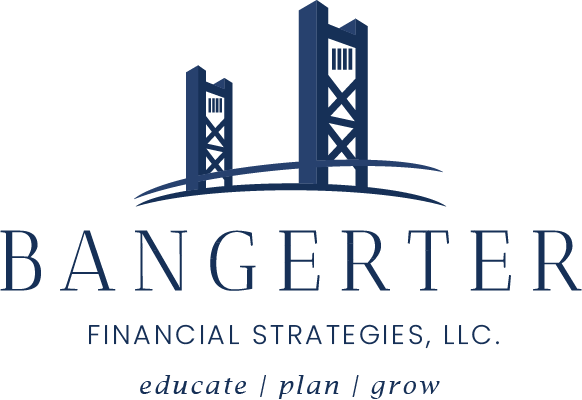If you’re looking for a passive real estate investment, if suitable, you may want to consider a Delaware Statutory Trust (DST). These investment vehicles create opportunities for the right investor.
A DST allows accredited investors to purchase a “beneficial interest” in real estate properties that are owned by the trust. Since many of the properties held within a DST typically may fall in the range of $25 million to $125 million, they provide exposure to professionally managed, institutional-quality real estate that may otherwise be unattainable.
There are also many different types of DSTs, giving investors the ability to further diversify their portfolios using a wide variety of real estate asset classes. Here’s a look at some popular types of properties included in DST offerings.
1. ResidentialMultifamily residential properties are well known, and from our experience, a popular choice for DST buyers. There are a variety of multifamily properties to choose from, ranging from “Class A” apartments, which are newly built, to “Class B” apartments that are in need of some improvement. One potential benefit of purchasing Class B apartments is the ability to upgrade and add value, which may have potential to increase profit when it’s time to sell.

2. Retail
Retail properties include both single-tenant and multi-tenant properties. Despite the rise of e-commerce, there is still a demand for brick-and-mortar retail spaces. This is particularly true for properties that are able to obtain low-cost and recession-resistant tenants.
3. Industrial
While the rise in internet shopping hasn’t completely derailed the demand for retail properties, it has increased demand for industrial properties. From storage and distribution warehouses to manufacturing and flex space, there’s a need for properties that provide tenants with large open spaces.
One advantage of investing in industrial properties is their ability to be utilized by many different types of tenants. Industrial properties also tend to have few tenants and low turnover, making them a fairly dependable option.
4. Self-Storage
Between 2010 and 2020, occupancy rates for self-storage units have climbed from 75.7% to 92.2%, making this a rising sector of DST properties.1 Self-storage properties help provide diversification, since they historically have performed well during recessions. Demand for self-storage units is already high and has the potential to continue increasing. However, the availability of these properties is limited.

5. Office
Office space has gone through some ups and downs over the years. This sector was once dominated by multi-tenant buildings. However, many office space DSTs now mostly consist of single-tenant buildings, such as corporate headquarters.
Explore Your DST Investment Options
While we’ve just covered five popular types of DST properties, there are other options to explore. This includes hotels, assisted living properties, and oil and gas properties, for example.
The wide variety of DST properties available provide the ability optimize your portfolio’s diversification and take advantage of certain sectors when appropriate. If you would like to learn more about DST investment options, we’re here to help. Simply give us a call at 866-856-4708 or complete our online form to request access to our list of available properties.
Considering a DST 1031 Exchange?
In addition to the five popular types of DST properties covered above, there are also other options worth exploring. This includes assisted living properties, hotels, oil and gas properties, and more, for example. This wide range of sectors can help you diversify your portfolio and take advantage of economic cycles when appropriate.
If you’re thinking about using a DST as a replacement property for your 1031 exchange, we encourage you to continue your research by downloading a complimentary copy of our eBook: “Using DSTs for a 1031 Exchange.”
1https://www.multihousingnews.com/whats-in-store-for-the-self-storage-industry/#:~:text=What's%20your%20take%20on%20this,demand%20remains%20high%20industry%2Dwide.
Because investor situations and objectives vary this information is not intended to indicate suitability or a recommendation for any individual investor.
This is for informational purposes only, does not constitute individual investment advice, and should not be relied upon as tax or legal advice. Please consult the appropriate professional regarding your individual circumstance.
Past performance is not indicative of future results.
Diversification does not guarantee a profit or protect against a loss in a declining market. It is a method used to help manage investment risk.
There are material risks associated with investing in DST properties and real estate securities including liquidity, tenant vacancies, general market conditions and competition, lack of operating history, interest rate risks, the risk of new supply coming to market and softening rental rates, general risks of owning/operating commercial and multifamily properties, short term leases associated with multi-family properties, financing risks, potential adverse tax consequences, general economic risks, development risks, long hold periods, and potential loss of the entire investment principal. Past performance is not a guarantee of future results. Potential cash flow, returns and appreciation are not guaranteed. IRC Section 1031 is a complex tax concept; consult your legal or tax professional regarding the specifics of your particular situation. This is not a solicitation or an offer to sell any securities. DST 1031 properties are only available to accredited investors (typically have a $1 million net worth excluding primary residence or $200,000 income individually/$300,000 jointly of the last three years) and accredited entities only. If you are unsure if you are an accredited investor and/or an accredited entity please verify with your CPA and Attorney.
Investments in commodities may have greater volatility than investments in traditional securities, particularly if the instruments involve leverage. The value of commodity-linked derivative instruments may be affected by changes in overall market movements, commodity index volatility, changes in interest rates or factors affecting a particular industry or commodity, such as drought, floods, weather, livestock disease, embargoes, tariffs and international economic, political and regulatory developments. Use of leveraged commodity-linked derivatives creates an opportunity for increased return but, at the same time, creates the possibility for greater loss.
Investment advisory services offered through Bangerter Financial Services, Inc. A state Registered Investment Advisor. Registered Representative and securities offered through Concorde Investment Services, Inc. (CIS), member FINRA/SIPC. Bangerter Financial Services, Inc. is independent of CIS.






.png?width=273&height=103&name=Brokercheck%20(1).png)

Comments